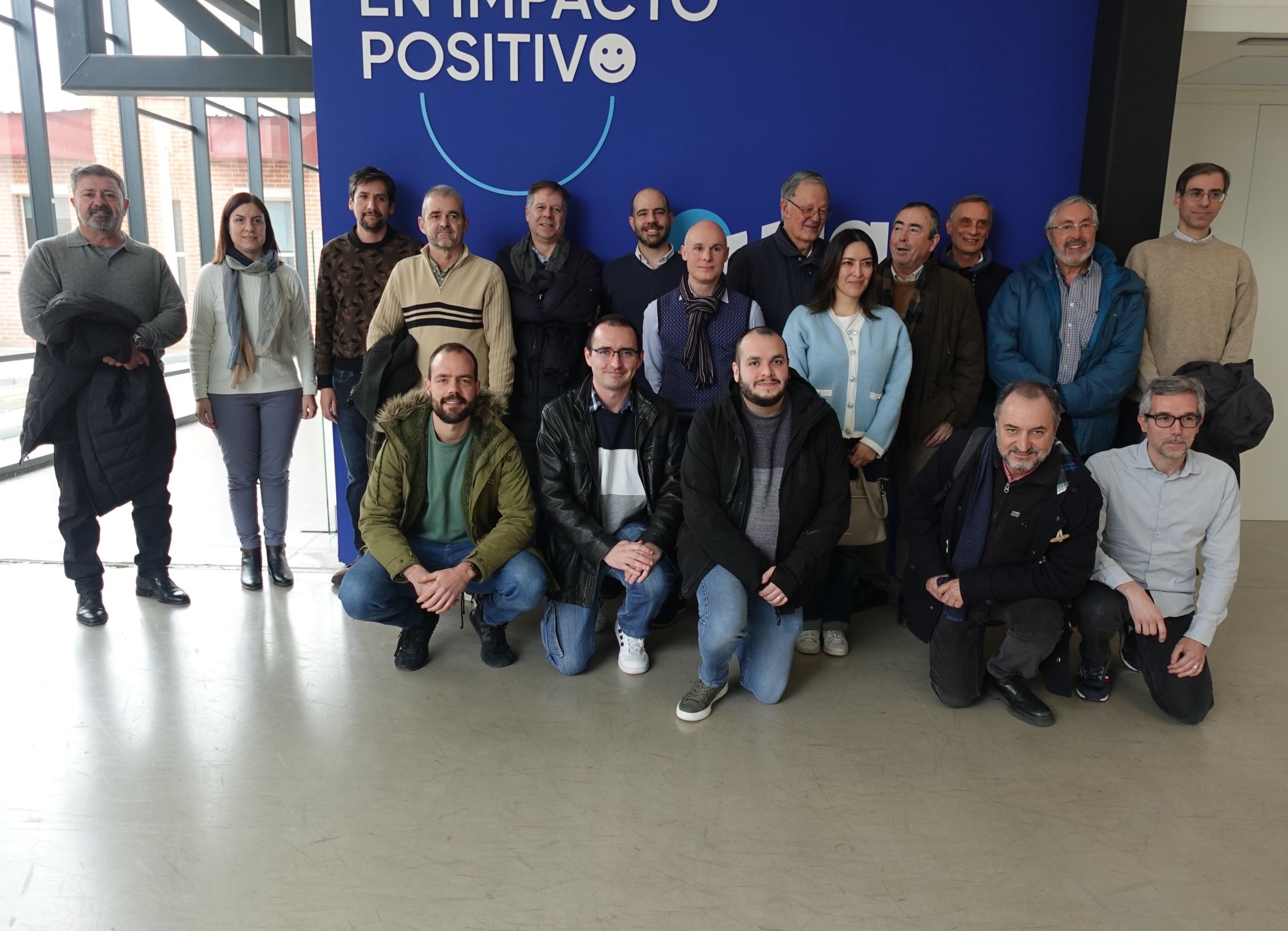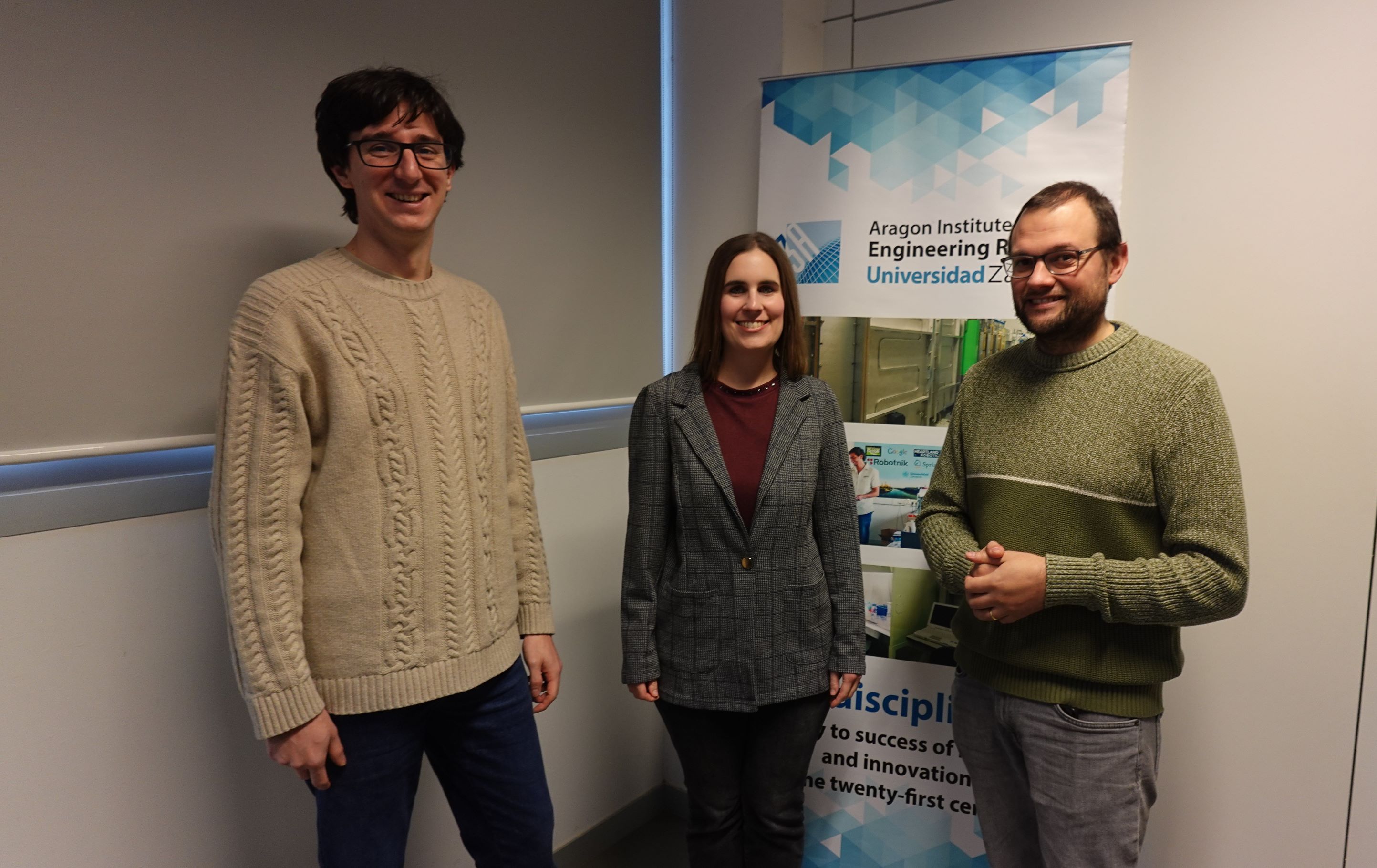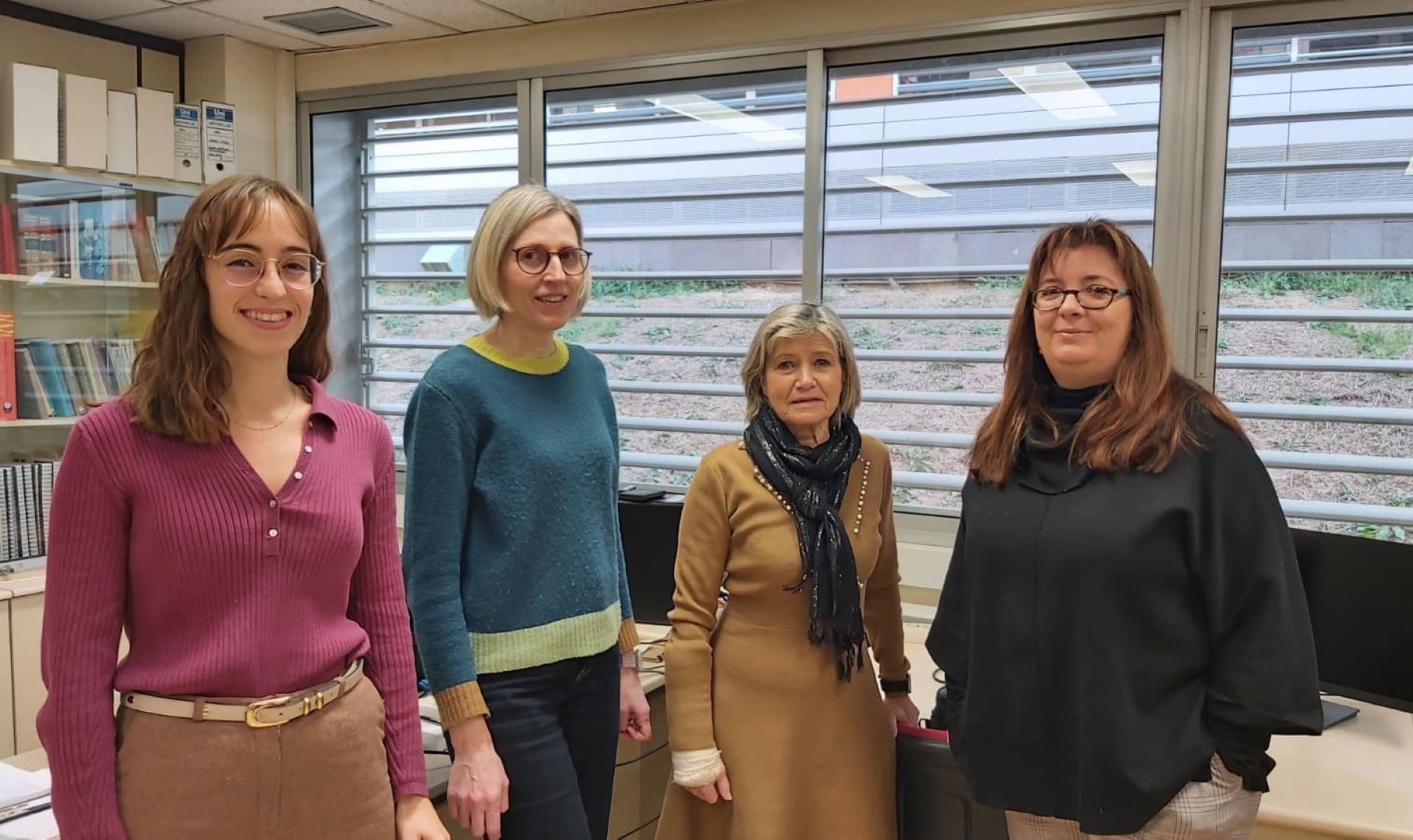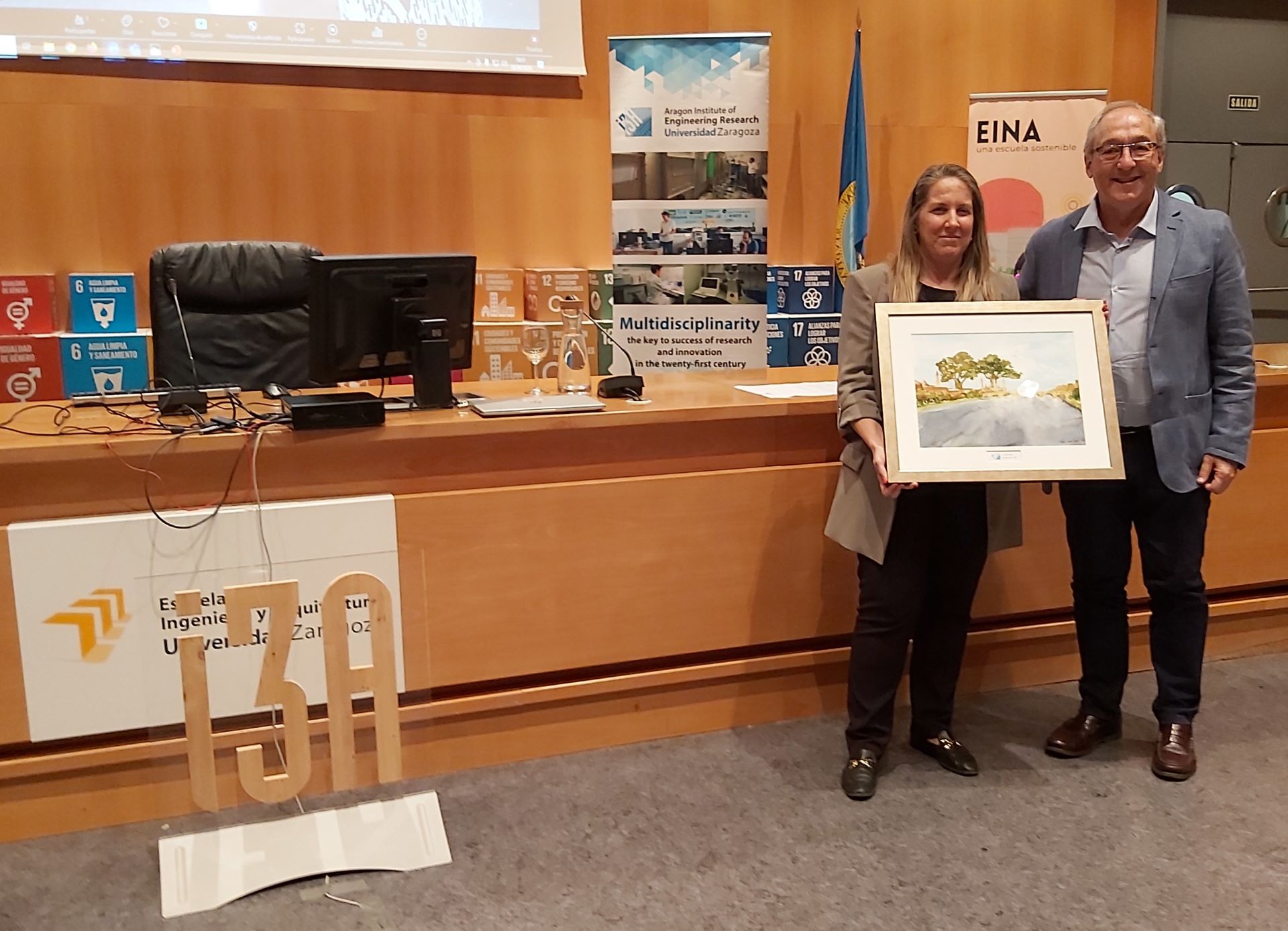
The Aragon Institute for Engineering Research (I3A) has just awarded the Foundation for New Hydrogen Technologies in Aragon with the "I3A Distinction", a prize that is awarded every year and which, on this occasion, recognises the long history of cooperation with this Institute of the University of Zaragoza in the field of hydrogen, a key energy vector in the common effort to reduce the environmental impact of the energy needs of our society.
The award ceremony took place yesterday afternoon and closed the V Jornada I3A and the XIII Jornada de Jóvenes Investigadores y Investigadoras. The General Director of Industrial Promotion and Innovation of the Government of Aragon, Mar Paños, was in charge of collecting this award, which was presented by Jesús Arauzo, Director of the I3A.
The director general recalled that both the Institute and the Hydrogen Foundation "are pioneers in starting to study and research on Hydrogen and try to bring it to the market and transform the Aragonese industry". She also highlighted the collaboration with the research groups of the I3A and reaffirmed the commitment of the Foundation to continue with this line of action "to advance in the transfer so necessary to continue advancing".
#YoungI3A Awards
Throughout the day 90 young researchers presented their lines of work, taking their first steps in their research career, of which the I3A awarded five works in the areas of Biomedical Engineering, ICT, Industrial Technologies and Processes and Recycling.
The jury selected these five works:
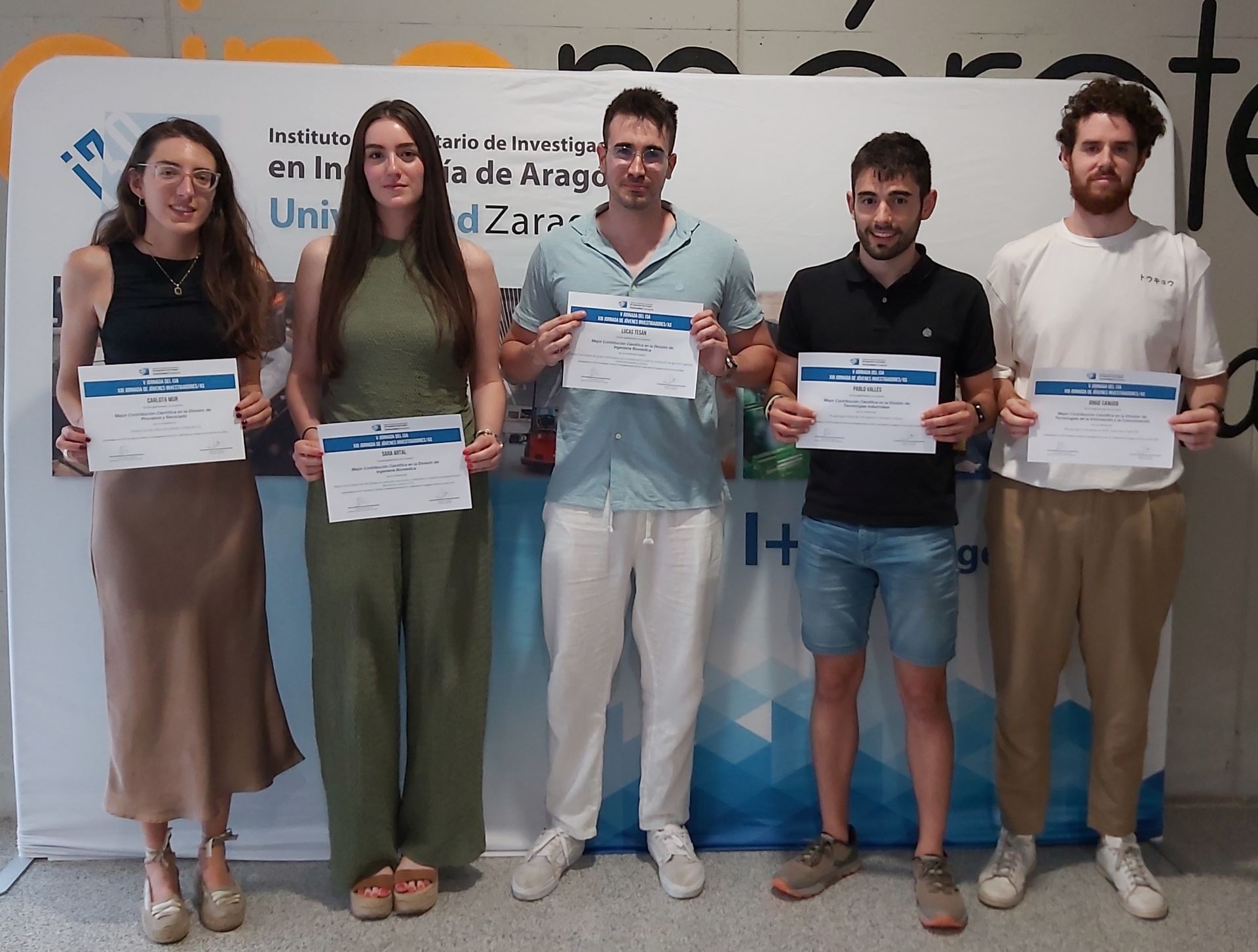
Biomedical engineering:
- Lucas Tesán. Redes neuronales de grafos informadas por termodinámica para la simulación de gemelos digitales anatómicamente precisos.
- Sara Artal. Mejora de la detección de fibrilación auricular paroxística mediante un modelo semisupervisadobasado en señales ECG
IT:
- Jorge Canudo. Monitorización de flecha en OPPC mediante CP-ФOTDR
Industrial Technologies:
- Pablo Vallés. A Lagrangian Model for Microplastics Transport in Riverspresentada
Processes and Recycling:
- Carlota Mur. Producción de sílice precipitada mediante CO2
The day began at 9 a.m. with the official inauguration by the Director General of Science and Research of the Government of Aragon, Pilar Gayán, the Vice-Rector for Science Policy of the University of Zaragoza, Rosa Bolea, and the Director of the I3A, Jesús Arauzo.
The inaugural conference was given by Isabel Fariñas, Professor of Molecular Biology and Director of the Molecular Neurobiology Unit at the University of Valencia.
In her talk, entitled "Stem cells, quiescence and immunity in the brain: sleep makes you live longer", she explained that the "long-accepted idea that our immune system barely monitors our brain cells has been challenged by recent experiments. In this new context, the talk was about the interactions between the immune system and brain stem cells," she says.


In addition, the six IMPULSO projects on which different I3A groups are working together were presented at the conference:
- Optimización y automatización del proceso de congelación de tejido ovárico para preservar la fertilidad en niñas que padecen cáncer. Clara Malo, Iñaki Ochoa.
- A Multimodal Approach for Single-Cell Interrogation: Integrating Phase-Field Numerical Simulations, MicroFluidics, ICP-Mass Spectrometry, and Computer Science (MASCI). Eduardo Bolea, Marco de Corato, Elena García.
- Development of accurate and physiologically meaningful digital twins of vascular hemodynamics using physics-informed neural networks. Javier Murillo, Julia Ramírez.
- Análisis multiescala de procesos de adsorción: escalado industrial y circularidad aplicados al sector agropecuario. Salvador Izquierdo, Isabel Fonts.
- Artificial Intelligence and Satellite Imagery to reformulate Hydro-Erosive Computational Models with application to soil loss after massive wildfires. Sergio Martínez, Javier Lacasta.
- Modelos avanzados de inteligencia artificial para el diagnóstico corneal. Alejandra Consejo y Belén Masiá.
Diplomas of recognition were also awarded to those who have obtained the I3A Grants for Bachelor's and Master's Degree Final Project and the bridge contract grants.
This day has already become a meeting point to talk about research from transfer to business, scientific work as a long-distance career and learning and opportunities for the future.

